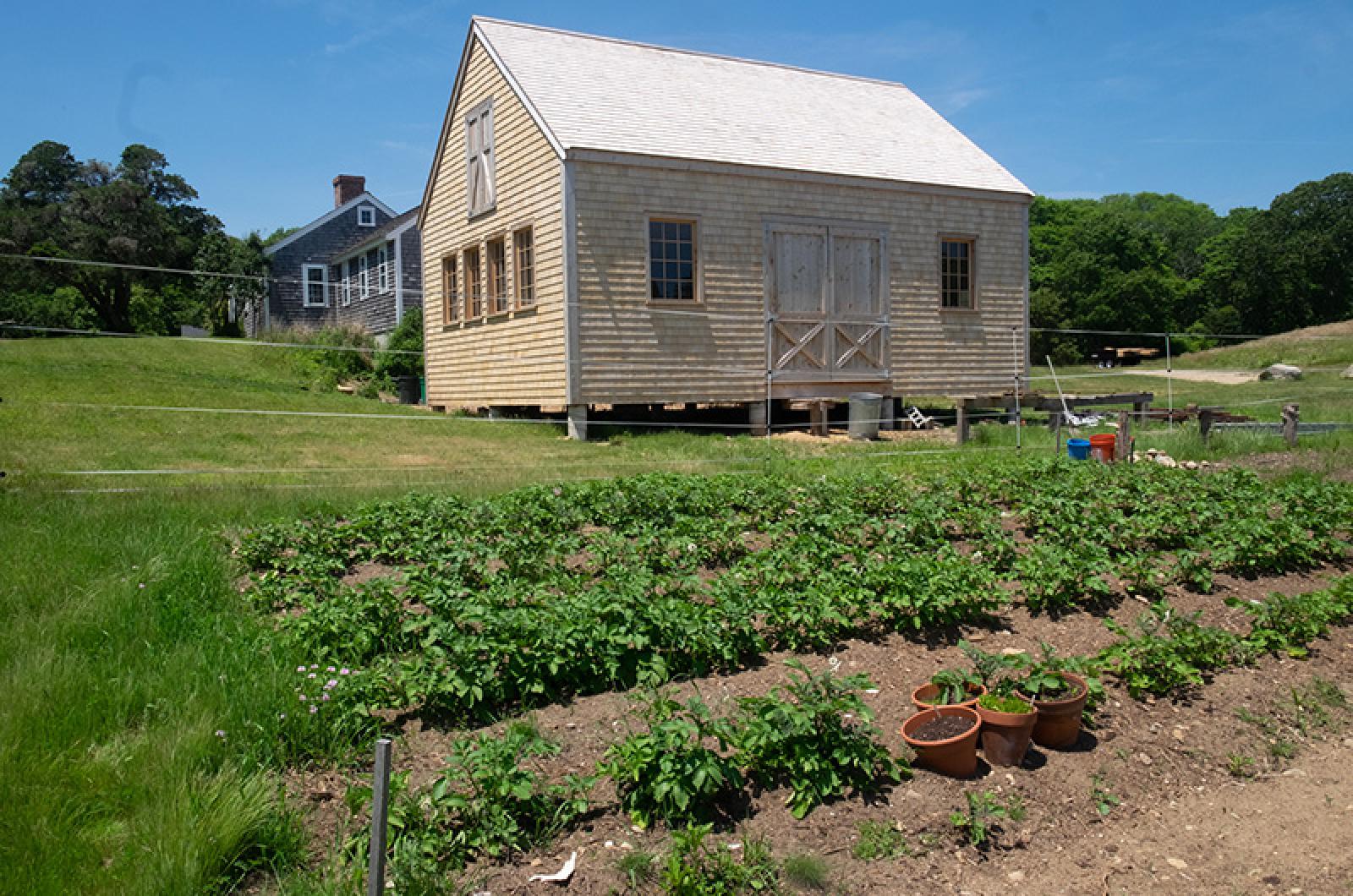It is with great pleasure that I am taking on the revived Farm and Field column this summer.
I live and farm on Chappaquiddick, that mysterious little island separated from the Vineyard by a 527-foot ferry ride. I moved here seven years ago after being granted an affordable lease for an old farmhouse and nine acres of land. To any seasoned farmer, the rolling, sandy slopes would not have seemed like a viable option for vegetable growing. The land was much better suited for a few meandering sheep than for any significant row crop production. But here I was, a 26-year-old, idealistic dreamer, hungry to start her own vegetable venture and naive enough to believe it could happen.
I moved into the Slip Away farmhouse with my brother, a friend, and a now-former boyfriend in the fall of 2012. By springtime, we had built a greenhouse and a chicken coop, installed a new well, and plowed our first fields. Many of our neighbors, perhaps a little wary of these new young farmers, looked at our freshly tilled ground and commented on what a large area it was. I think until that moment they figured we would be sticking to a small, fenced garden out back and selling a tomato or two here and there.
The question I received most was: “So, you are going to grow what?”
Somehow we convinced 40 families to join our Community Supported Agriculture (CSA) shares that spring, giving us the confidence and the money we needed to begin the season. We ordered all our seeds, limed and fertilized the fields, and purchased electric fencing to keep out the deer. Ton bags of potting soil arrived from Vermont, as did seedling trays, irrigation parts, hand tools, and a new batch of chicks.
Larger purchases, like the chisel plow and the disk harrow for the tractor a neighbor loaned us, brought on the new challenge of transportation from the Cape to Chappaquiddick. As we answered one question, five more popped up, leading to an endless list of items that could have fit under the title “How Do We . . . ?”
I learned so much in that first season. I had farmed at two other farms, Morning Glory in Edgartown and a small organic farm in Western Massachusetts. But I had never been so intimately involved in every step between seed and harvest. I learned about the wonder of watching a tiny seed evolve from a speck in your hand into an entire plant that feeds your community. I learned about heartbreak, the loss of a crop to disease or pest, and resilience, the ability (perhaps necessity) to shrug off that loss and move on to the next crop. I learned to always keep one eye on the sky, the weather dictating each day’s tasks. I learned why other farmers, when they saw our land, looked at us sideways as we tried to coax our vegetables from the sand.
But perhaps most of all, I learned of the importance of a strong community in the success of a small farm. Farming is hard. It is often lonely, stressful, monotonous, meager-paying work. There have been low seasons, like last year, when every night deer devoured planting after planting in our fields, or the year we lost the entire tomato crop before it set fruit. But always I have been bolstered, financially and emotionally, by my community. I am lucky to farm with people I deeply respect, love and trust. Over the years, island neighbors have brought us plants for our perennial garden, lent us tools, donated to our fundraisers, and volunteered in our fields. Other farmers, too, have buoyed us; the Athearns at Morning Glory Farm and Andrew Woodruff of Whippoorwill Farm have been sounding boards for countless questions and are always willing to lend a hand or equipment. It is an honor to farm in this community, without which, I can say I would not be farming today.
Seven years in, and I am sometimes astonished by all we have accomplished. We have left behind the sandy soils of our original fields to grow on a (slightly) more suitable parcel down the road, keeping our original land for other farm needs. We now supply vegetables to 60 Chappy families, harvest flowers for a 40-member flower CSA, and have a busy weekend farm stand and a booth at the West Tisbury Farmers’ Market.
We have evolved and expanded, both personally and professionally. The original Slip Away property is now the foundation for two businesses: the farm and my friend Collins Heavener’s woodworking business, Marshall Farm Wood-Works, housed in a post and beam barn Collins built this past winter.
I have married, had a baby, and learned to farm as a new mother.
I am honored to take on the role of writing the Farm and Field column. I intend to keep what is already a thriving agricultural community on Martha’s Vineyard vital in your mind.




Comments (16)
Comments
Comment policy »